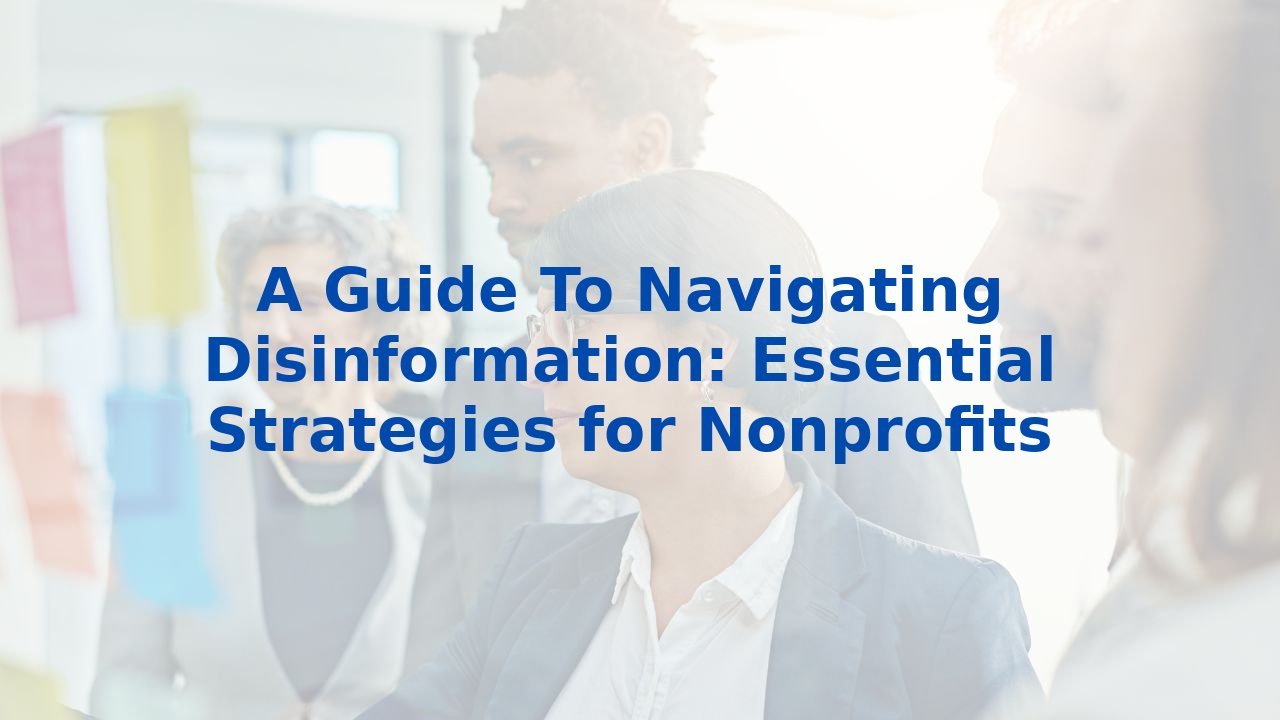A Guide To Navigating Disinformation: Essential Strategies for Nonprofits
Navigating Disinformation: A Playbook for Nonprofits
In the ever-evolving landscape of public relations, nonprofit organizations often find themselves at a crossroads of trust and misinformation. When disinformation threatens your respected organization, it can feel overwhelming. However, with a strategic approach and robust communication practices, organizations can emerge stronger than ever. In this article, we will explore effective crisis management strategies for nonprofits, emphasizing the critical role AI can play in enhancing these processes and building community resilience.
Understanding the Crisis Management Framework
Crisis management is not just about putting out fires; it's about establishing a framework for resilience. The key stages include:
1. Preparation
Being proactive rather than reactive is the foundation of crisis management. Developing a thorough crisis communication plan with clear protocols ensures that everyone within the organization knows their role. Training staff and volunteers can drastically affect how efficiently your nonprofit handles misinformation. Regular workshops, simulations, and discussions on common scenarios can build confidence and enhance response times.
2. Response
When disinformation arises, swift action is crucial. Clear, concise communication during a crisis helps to mitigate panic and confusion among stakeholders. Transparency builds credibility, so providing accurate updates regularly is essential. Organizations should also prepare designated spokespersons who are trained in managing media inquiries and public concerns. An empathetic voice can turn a potentially damaging narrative into an opportunity for authentic engagement.
3. Recovery
Once the immediate crisis is under control, the recovery phase begins. This involves not only addressing the fallout from the misinformation but also revisiting the communication strategy to identify weaknesses. Regularly updating your crisis management plan based on lessons learned will strengthen your organization’s resilience against future challenges.
The Role of AI in Crisis Management
Integrating AI into your crisis management strategy offers unprecedented advantages. Here’s how AI can enhance each stage:
Preparation
AI can sift through vast amounts of data, enabling organizations to identify potential risks before they escalate into crises. Predictive analytics can provide insights into community sentiment, allowing nonprofits to tailor their messaging proactively. AI-driven tools can also assist with automating training processes, ensuring that employees are consistently equipped with the latest knowledge on emerging threats and best practices in communication.
Response
When disinformation strikes, speed is of the essence. AI can monitor social media channels in real-time, flagging misinformation as it emerges. This rapid identification allows organizations to respond promptly, aiding in building trust among stakeholders by demonstrating that they are listening and acting quickly to address concerns. Furthermore, AI chatbots can provide immediate answers to inquiries, ensuring accurate information is disseminated efficiently.
Recovery
Post-crisis evaluation is crucial for growth. AI can analyze the effectiveness of the responses and outcomes through data metrics. This analysis helps nonprofits understand what worked and what didn’t, facilitating insightful discussions about adjustments in strategy moving forward.
Training Your Employees for AI
To fully harness the potential of AI in crisis management, ongoing employee training is paramount. Knowledgeable staff equipped with AI competencies can leverage these tools effectively, enhancing overall organizational efficiency. Training should focus on developing skills that not only familiarize teams with AI technology but also emphasize ethical considerations. Understanding AI’s role in maintaining transparency and accountability can lead to improved public trust, ultimately fortifying community resilience.
Building Community Resilience
In conclusion, navigating disinformation is no small feat, but nonprofits have within them the potential to build profound resilience. Embracing a structured crisis management framework, enhanced through AI technologies, will empower your organization to not only withstand challenges but emerge as a more robust entity. By fostering a culture of preparedness and accountability, you can establish deeper connections with your community, reinforcing trust and advocating for your mission even in the face of adversity.
To explore how your organization can develop AI skills comprehensively, visit Complete AI Training and consider investing in programs designed for your entire workforce. Let’s turn challenges into opportunities for growth.



